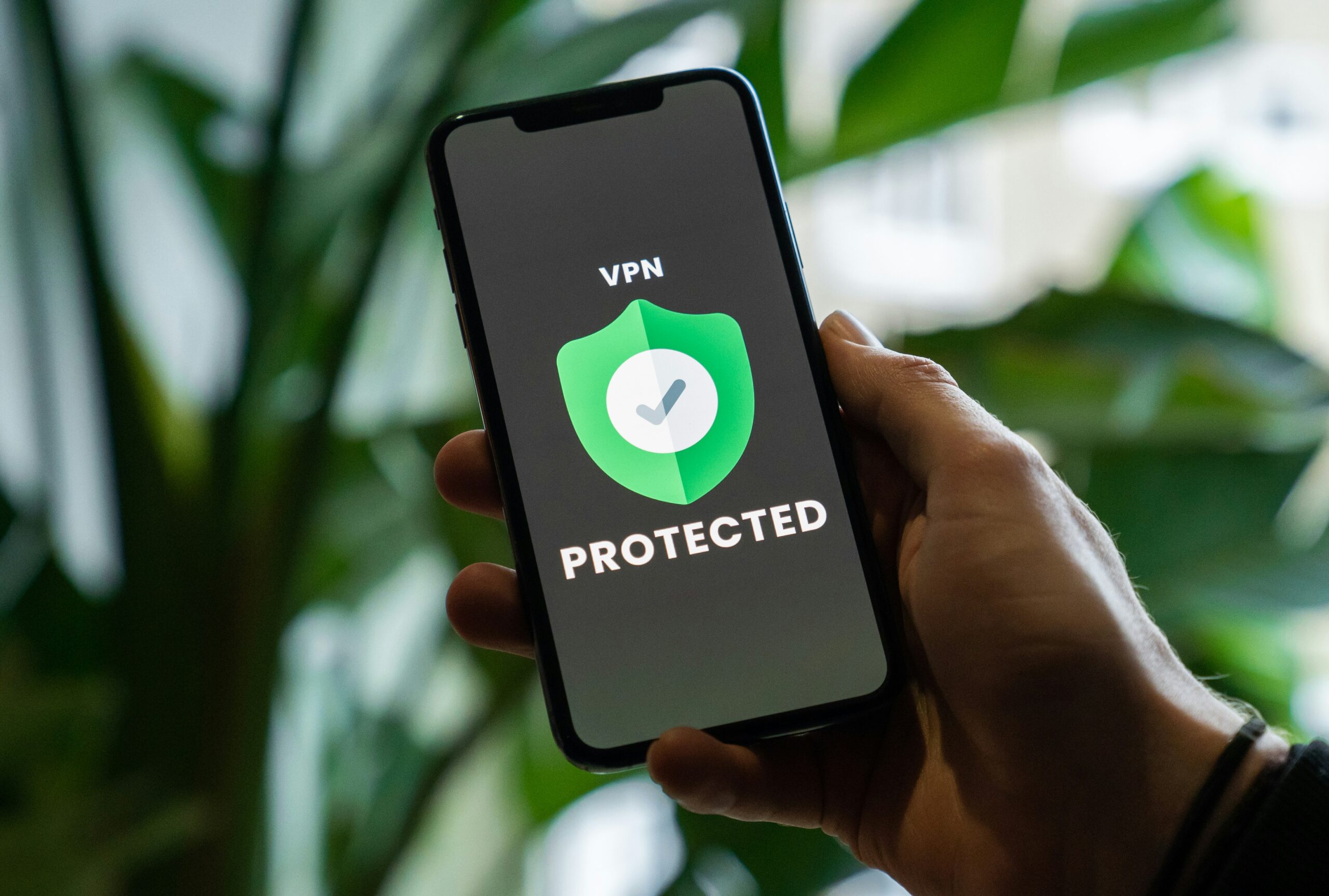Introduction: What Is MSP in Cyber Security?
In today’s digital world, cyber security is crucial to protect sensitive information from online threats. That’s why so many businesses rely on managed service providers (MSPs). But what exactly is a MSP in cyber security?
A MSP is a company that remotely manages a customer’s IT infrastructure and/or end-user systems, typically on a proactive basis. They provide a range of services, including network, application, security, and infrastructure management, among others. Essentially, MSPs act as an outsourced IT department, offering expertise and support to businesses of all sizes.
In this blog, we’ll explore what is MSP in cyber security by discussing the the rise in cyber security threats, the importance of MSPs, their role in enhancing cyber security. We’ll also cover the different types of managed services provided.
The Importance of Cyber Security
With the rise of cyber threats, protecting sensitive data and systems is critical. A breach in security can lead to devastating consequences, including financial loss, damage to reputation, and legal liabilities.
Businesses must safeguard against various cyber attacks, such as malware, phishing, and ransomware. Implementing robust cybersecurity measures is essential to mitigate these risks and ensure business continuity. That’s why managed service providers (MSPs) offer expertise in managing and securing IT infrastructure. They often also provide proactive monitoring, threat detection, and incident response services.
Partnering with a reliable MSP like K3 Technology can help businesses strengthen their cybersecurity posture and stay ahead of evolving threats.

The Necessity of MSPs: Cyber Security Threats on The Rise
In today’s interconnected digital landscape, businesses face a myriad of cyber threats that can jeopardize their sensitive data, financial stability, and reputation. Common cyber security threats include:
- Phishing Attacks: Deceptive emails or messages trick users into revealing sensitive information.
- Malware Infections: Software designed to damage or gain unauthorized access to systems, often spread through email attachments or malicious websites.
- Ransomware Attacks: Malicious software that encrypts files or systems, demanding payment for their release.
- Insider Threats: Employees or other authorized users who misuse their access to systems, intentionally or unintentionally.
- Distributed Denial of Service (DDoS) attacks: Overwhelming a system or network with traffic to disrupt services or make them inaccessible.
- Social Engineering: Manipulating individuals to divulge sensitive information or perform actions that compromise security.
By recognizing these threats and their potential impacts, organizations can better prepare themselves to defend against malicious actors and safeguard their valuable assets. Partnering with a trusted MSP like K3 Technology can help businesses implement robust security measures.

What Is Managed IT: The Types of MSPs
There are many different types of managed service providers (MSPs). Some offer full-service solutions, managing all aspects of IT infrastructure, while others specialize in specific areas like security or cloud computing.
Full-service MSPs provide comprehensive support, including network management, data backup, and cybersecurity. They act as a one-stop-shop for all IT needs, offering convenience and efficiency to businesses. On the other hand, specialized MSPs focus on particular areas, such as cybersecurity, offering in-depth expertise and tailored solutions.
In terms of business models, MSPs typically offer subscription plans or service packages. Subscription plans involve a recurring fee for ongoing support and maintenance, providing businesses with predictable costs and continuous service. Service packages, on the other hand, may offer a set of predefined services for a fixed price, allowing businesses to choose the level of support that best fits their needs. Both models aim to provide businesses with flexibility and scalability in managing their IT infrastructure.
Considering these options, businesses can select the MSP model that aligns best with their requirements.
MSPs vs MSSPs: What’s the Difference for Cyber Security?
It is important to note the differences in between Managed Service Providers (MSPs) and Managed Security Service Providers (MSSPs). While both offer crucial services, they differ in their focus and offerings.
MSPs primarily focus on managing and maintaining IT infrastructure, including network monitoring, data backup, and system updates. They offer a broad range of IT services aimed at ensuring the smooth operation of businesses’ technology environments.
On the other hand, MSSPs specialize specifically in cybersecurity. They provide advanced security services such as threat detection, incident response, and security monitoring. MSSPs leverage cutting-edge technologies and expertise to protect businesses from evolving cyber threats. Unlike MSPs, MSSPs are solely dedicated to safeguarding businesses against security breaches and data breaches.
Choosing between an MSP and an MSSP depends on the specific needs and priorities of a business. While MSPs offer comprehensive IT support, MSSPs specialize in providing top-notch cybersecurity solutions. Partnering with a reliable provider like K3 Technology can ensure businesses receive the level of support and protection needed to thrive in today’s digital landscape.

Cybersecurity Managed Services Benefits
Managed cybersecurity services from MSPs offer several benefits:
- Proactive threat detection and prevention.
- Continuous monitoring of networks and systems.
- Timely response to security incidents.
- Enhanced data protection and privacy measures.
- Compliance with industry regulations and standards.
- Access to expert cybersecurity professionals.
- Cost-effective solutions compared to in-house security teams.
Partnering with a trusted provider like K3 Technology ensures businesses receive comprehensive cybersecurity support tailored to their needs.
Types of Managed Services in Cyber Security
Managed Service Providers (MSPs) offer various types of managed cybersecurity services, including:
- Network Security: Protecting networks from unauthorized access and cyber threats.
- Endpoint Security: Securing endpoints such as laptops, desktops, and mobile devices from malware and other threats.
- Vulnerability Management: Identifying and patching vulnerabilities in systems and applications to prevent exploitation by attackers.
- Security Monitoring and Incident Response: Continuous monitoring of IT systems for suspicious activities and swift response to security incidents.
- Data Protection: Implementing measures to safeguard sensitive data from unauthorized access or theft.
- Security Awareness Training: Educating employees about cybersecurity best practices to reduce the risk of human error.
- Compliance Management: Helping businesses comply with relevant industry regulations and standards to avoid penalties and reputational damage.
Partnering with a trusted provider like K3 Technology ensures businesses have access to a comprehensive suite of managed cybersecurity services to protect their digital assets.

Stay Protected: How MSPs Safeguard Your Network from Cyber Threats
Network security refers to the safeguarding of a company’s network infrastructure from unauthorized access, data breaches, and cyber threats. It involves implementing various security measures and protocols to protect the integrity, confidentiality, and availability of data transmitted over networks. These measures may include:
- Firewalls: Acting as a barrier between a company’s internal network and external threats, firewalls monitor and control incoming and outgoing network traffic based on predetermined security rules.
- Intrusion Detection Systems (IDS) and Intrusion Prevention Systems (IPS): IDS detects and alerts administrators to potential security breaches, while IPS actively blocks or mitigates detected threats.
- Virtual Private Networks (VPNs): Encrypting data transmitted over public networks, VPNs provide secure remote access to company resources.
- Network Access Control (NAC): Verifying the identity and security posture of devices attempting to connect to the network before granting access. This is accomplished through multi-factor authentication, role-based access control, and more.
Partnering with a reputable MSP like K3 Technology ensures businesses have robust network security measures in place to protect their digital assets from cyber threats.
Endpoint Protection 101: Keeping Your Devices Safe from Cyber Threats
Endpoint security focuses on protecting the devices that connect to the network, such as computers, smartphones, and tablets. These endpoints are often targets for cyberattacks because they serve as access points to the organizational network. Effective endpoint security involves:
- Installing antivirus software to detect and remove malware that can compromise data.
- Employing endpoint detection and response (EDR) systems to continuously monitor devices for signs of malicious activity and respond to detected threats promptly.
- Implementing strict access controls to ensure that only authorized users and devices can access sensitive information.
- Regularly updating and patching devices to close security vulnerabilities that could be exploited by attackers.
Ensuring these measures are consistently applied can dramatically reduce the risk of a data breach.
Patch, Protect, Prevent: Strategies for Effective Vulnerability Management
Vulnerability management is designed to continuously identify, classify, remediate, and mitigate vulnerabilities within an organization’s IT infrastructure.
This process begins with comprehensive scanning of systems to detect vulnerabilities that might be exploited by attackers. Once identified, these vulnerabilities are assessed to determine their potential impact and the risk they pose to the organization. Prioritization follows, where the most critical vulnerabilities—those that could cause the most significant damage—are addressed first.
Remediation actions can include patching software, adjusting security settings, or even replacing vulnerable systems entirely. Additionally, this proactive approach not only helps in defending against known threats but also enhances the overall security posture by preventing breaches before they occur.
For businesses looking to strengthen their defenses against cyber threats, partnering with a managed service provider like K3 Technology can be particularly advantageous.

Proactive Defense: MSP Harnessing the Power of Security Monitoring to Mitigate Risks
Security monitoring and incident response are crucial components of cybersecurity. These processes enable businesses to detect cybersecurity threats in real time and respond effectively to mitigate potential damage. Once a threat is detected, incident response measures are activated to address the threat. This typically includes:
- Identifying the nature and scope of the incident.
- Containing the threat to prevent further damage.
- Eradicating the source of the threat.
- Recovering any affected systems to operational status.
- Learning from the incident to strengthen future defenses.
This proactive approach not only limits the impact of attacks but also improves the resilience of the network against future threats.
Data Defense: MSP Essential Practices for Protecting Your Most Valuable Asset
Data protection is an essential aspect of cybersecurity that involves safeguarding sensitive information from unauthorized access, corruption, or theft. This process is vital for maintaining the privacy and integrity of data, which can include everything from personal customer details to corporate financial records. Effective data protection strategies typically involve several key elements:
- Encryption: Scrambling data so that it can only be read by someone with the correct decryption key.
- Backup solutions: Regularly copying data to secure locations, like the cloud, to ensure it can be recovered in case of data loss or a cybersecurity incident.
- Access controls: Limiting data access to only those individuals who need it for their work, thereby reducing the risk of internal breaches.
Such measures help ensure that critical information remains secure, whether stored on-premises or in the cloud.
Why Security Awareness Training is Non-Negotiable
Security awareness training is essential in creating a resilient IT environment for any business. This training educates employees about the various cybersecurity threats they might face. The primary goal is to enhance the understanding and vigilance of employees, turning them into the first line of defense against cyber threats.
Regular updates to training programs are necessary to address the latest security challenges and ensure all team members are aware of the best practices for safeguarding company data. Moreover, these trainings often include testing scenarios that help reinforce learning and gauge employee understanding.
Implementing security awareness training can significantly reduce the risk of breaches caused by human error.

Leveraging Compliance Management for Enhanced Security
Managed Service Providers (MSPs) play a pivotal role in ensuring that businesses not only meet but maintain compliance with laws and industry regulations. This task involves regular reviews of security policies, audits of IT practices, and updates to security measures to align with evolving regulations.
Effective compliance management helps organizations avoid hefty fines and reputational damage resulting from non-compliance. Furthermore, it ensures that sensitive data, whether it pertains to health, financial, or personal identity, is protected according to legal standards. MSPs assist businesses in navigating the complexities of compliance. From understanding the specific requirements of standards like GDPR, HIPAA, or PCI-DSS to implementing the necessary controls and protocols, MSPs can help.
Frequently Asked Questions
RELATED TO: “What Is MSP in Cyber Security”
What does MSP stand for?
MSP stands for Managed Service Provider. An MSP is a company that remotely manages a customer’s IT infrastructure and/or end-user systems, typically on a proactive basis.
What does an IT managed services company do?
An IT managed services company, like K3 Technology, provides a range of IT services to businesses. This can include network management, data backup, cybersecurity, and technical support, among other services.
The goal is to help businesses optimize their IT operations and ensure their technology infrastructure runs smoothly.
What is an example of an MSP service?
An example of an MSP service is remote monitoring and management of IT systems. This involves continuously monitoring networks and systems for performance issues, security threats, and other issues, and taking proactive measures to address them before they become major problems.
What is the difference between MSP and MSSP in cyber security?
While both MSPs (Managed Service Providers) and MSSPs (Managed Security Service Providers) offer cybersecurity services, the main difference lies in their focus.
MSPs primarily manage and maintain IT infrastructure, while MSSPs specialize in providing advanced security services, such as threat detection and incident response.
What is fully managed IT services?
Fully managed IT services refer to comprehensive IT support provided by an MSP. This can include managing and maintaining all aspects of a company’s IT infrastructure, from network and server management to cybersecurity and helpdesk support.
With fully managed IT services, businesses can outsource their IT needs to a trusted provider like K3 Technology, freeing up time and resources to focus on their core business activities.
How to Select a MSP
Choosing the right Managed Service Provider (MSP) for cybersecurity is crucial for ensuring robust protection for your business. Here are some best practices to guide your selection:
- Assess Expertise and Experience: Ensure the MSP has proven experience in cybersecurity. Look for certifications and case studies that demonstrate their skill in managing complex security environments.
- Evaluate the Scope of Services: Confirm that the MSP offers comprehensive security services that match your business needs, including threat monitoring, incident response, and compliance management.
- Check for Proactive Security Measures: The right MSP should not only react to security incidents but also proactively monitor and update your defenses against emerging threats.
- Consider the Communication Plan: Effective communication is key. Choose an MSP that maintains transparent and frequent communication, providing clear reports and timely alerts about your security status.
- Review Service Level Agreements (SLAs): Ensure that the SLAs align with your business requirements, with clear metrics for response times and issue resolution.
By following these guidelines, businesses can make an informed decision when selecting a cybersecurity MSP. K3 Technology offers expertly managed cybersecurity services, ensuring that your IT environment is secure and compliant with industry standards.

Conclusion: What Is MSP in Cyber Security?
All in all, MSPs play a vital role in managing and protecting IT infrastructure, offering a range of services from network security to compliance management. By partnering with an MSP like K3 Technology, businesses can benefit from expert guidance, proactive security measures, and comprehensive support tailored to their specific needs.
With the ever-increasing complexity of cyber threats, having a trusted MSP on board can provide peace of mind and assurance that your business is well-equipped to face the challenges of the digital landscape. As businesses continue to prioritize cybersecurity, the role of MSPs will only become more critical in ensuring the resilience and security of IT environments.






